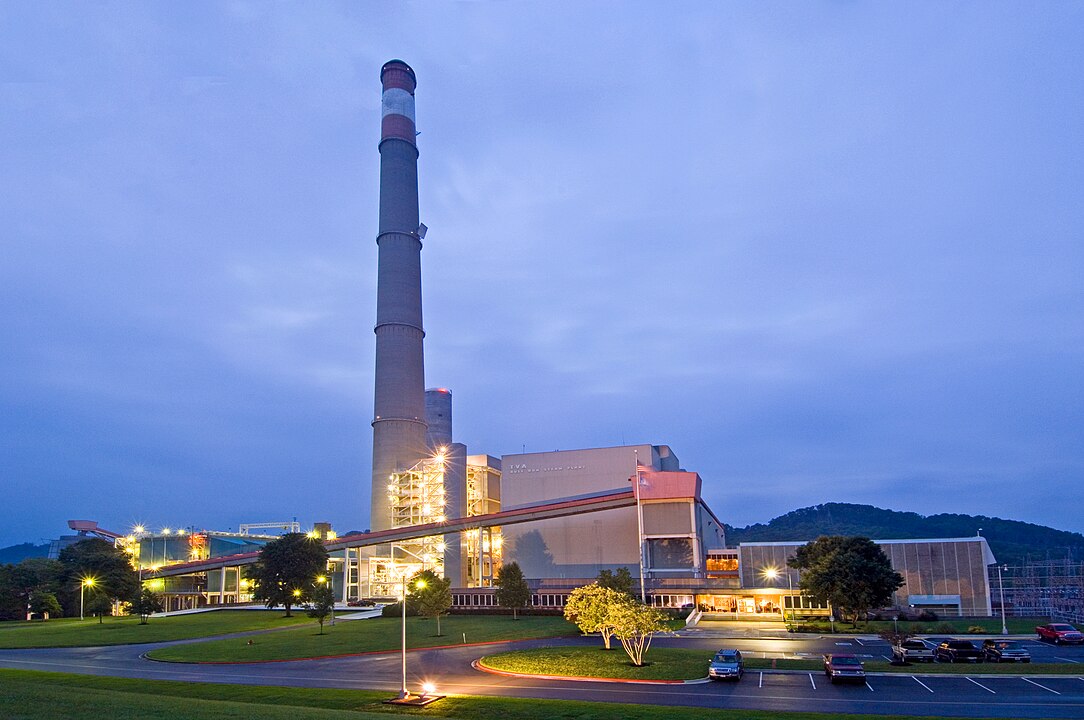The Bull Run plant opened in 1967, and TVA retired it in 2023. The Tennessee Valley Authority plans to close all its coal plants by 2035 and has already closed some others “to focus on clean energy.” The utility stated it plans to replace them with natural gas, nuclear and solar plants and energy-efficiency measures.
Meanwhile, the utility also intends to review and adhere to a Trump Administration order for continued and expanded use of coal to generate electricity. Climate activists also urge the federal utility to reassess its use of natural gas — another fossil fuel — as a widespread replacement for coal.
TVA has stated the coal plants generate about 14 percent of the utility’s power. Still, Melissa Greene, senior manager of media for TVA, said these aging coal plants were less efficient than new plants the utility could build now.
“Sometimes it’s more efficient to close one source and open another source,” she said. “We love for people to get their cell phones charged.”
TVA has announced plans to retire one unit at Cumberland Fossil Plant in Cumberland City by the end of 2026; Kingston Fossil Plant In Kingston by the end of 2027; and a second unit at Cumberland at the end of 2028. Adam May with TVA media relations said “the retirement of the Cumberland and Kingston units is contingent upon the construction and commissioning of replacement generation.” May said TVA hadn’t decided on the retirement dates for Shawnee Fossil Plant in Kentucky or Gallatin Fossil Plant near Gallatin, Tennessee.
The coal phaseout started before President Donald Trump’s inauguration but TVA as a wholly owned government corporation is responding to Trump’s executive orders. And the Trump Administration has ordered expanding rather than cutting back on coal.
It issued the executive order “Reinvigorating America’s Beautiful Clean Coal Industry” in April this year, telling various department heads to look for and get rid of policies “that seek to transition the Nation away from coal production and electricity generation.” While the order did not mention TVA, May said the utility was “carefully reviewing” it.
“TVA continues to invest in its coal fleet to sustain the reliability and resiliency of its units,” May said. “We look forward to continuing to work with the Trump Administration to unleash American energy.”
Axel Ringe, conservation chair of the Tennessee Sierra Club, said he wasn’t sure what to make of statements like this.
“We don’t know if TVA’s public statements really reflect their actual plans or if they’re just making noise to appease the administration,” Ringe said. “They had committed to closing both the Cumberland and Kingston plants, but now they’re waffling and saying maybe they will keep them open indefinitely to ‘address increased future generation needs.’”
Yet another issue the club has raised with TVA, predating the Trump administration, is its planned continued use of natural gas. For example, at the former Kingston Fossil Plant site, TVA will build an energy complex that will house at least 1,500 megawatts of combined cycle and dual fuel aeroderivative natural gas combustion turbines with 100 megawatts of battery storage. At Cumberland, TVA is building over 1,400 megawatts of natural gas to be operational by end of 2026. While the utility plans to invest more in solar generally, for example building a solar field in Kingston generating four megawatts, Ringe and the Tennessee Sierra Club chapter have advocated for even more renewable energy and less use of fossil fuels. Ringe said that it would not just cut back on greenhouse gasses and improve health and safety but also reduce costs. TVA, however, has argued that using natural gas rather than coal reduces pollutants like sulfur dioxide, nitrogen oxide and carbon.
As for the Bull Run Fossil Plant site, TVA has floated many ideas, but May said it is currently only committing to two small-scale ones. The company Type One Energy will use part of the old plant’s office for an experiment which will not generate power but may pave the way for future fusion plants. A synchronous condenser which helps keep the overall grid’s power stable without generating power itself will use the old plant’s turbine.
The utility has made no announcements about the rest of its grounds, however, specifically its coal ash storage locations. Ringe pointed out that the executive order on coal, combined with the Environmental Protection Agency’s deregulations may mean less restrictions on toxic coal ash, an issue that grabbed national attention due to the Kingston coal ash spill. However, he pointed out TVA still must follow a 2015 Tennessee Department of Environment and Conservation Order to clean up the ash.
“At this point, it is hard to predict what TVA will do to deal with its active and legacy coal ash deposits,” he said. “We wait and see.”
